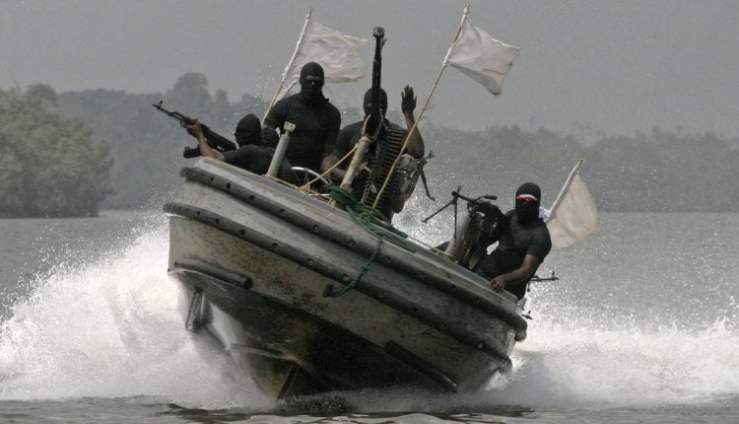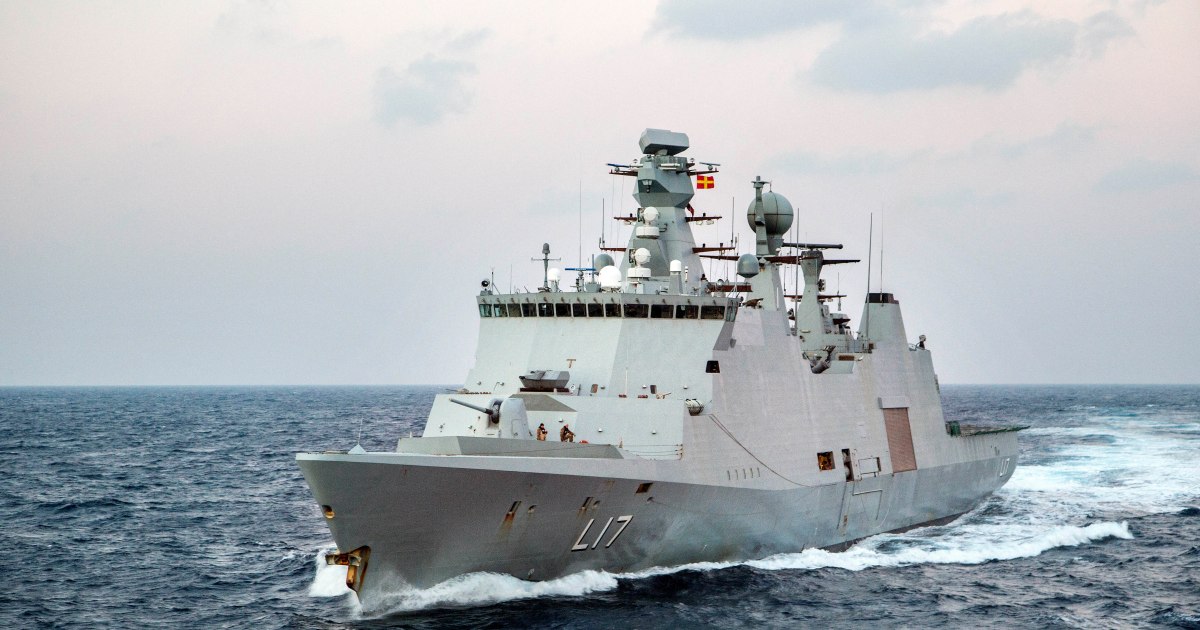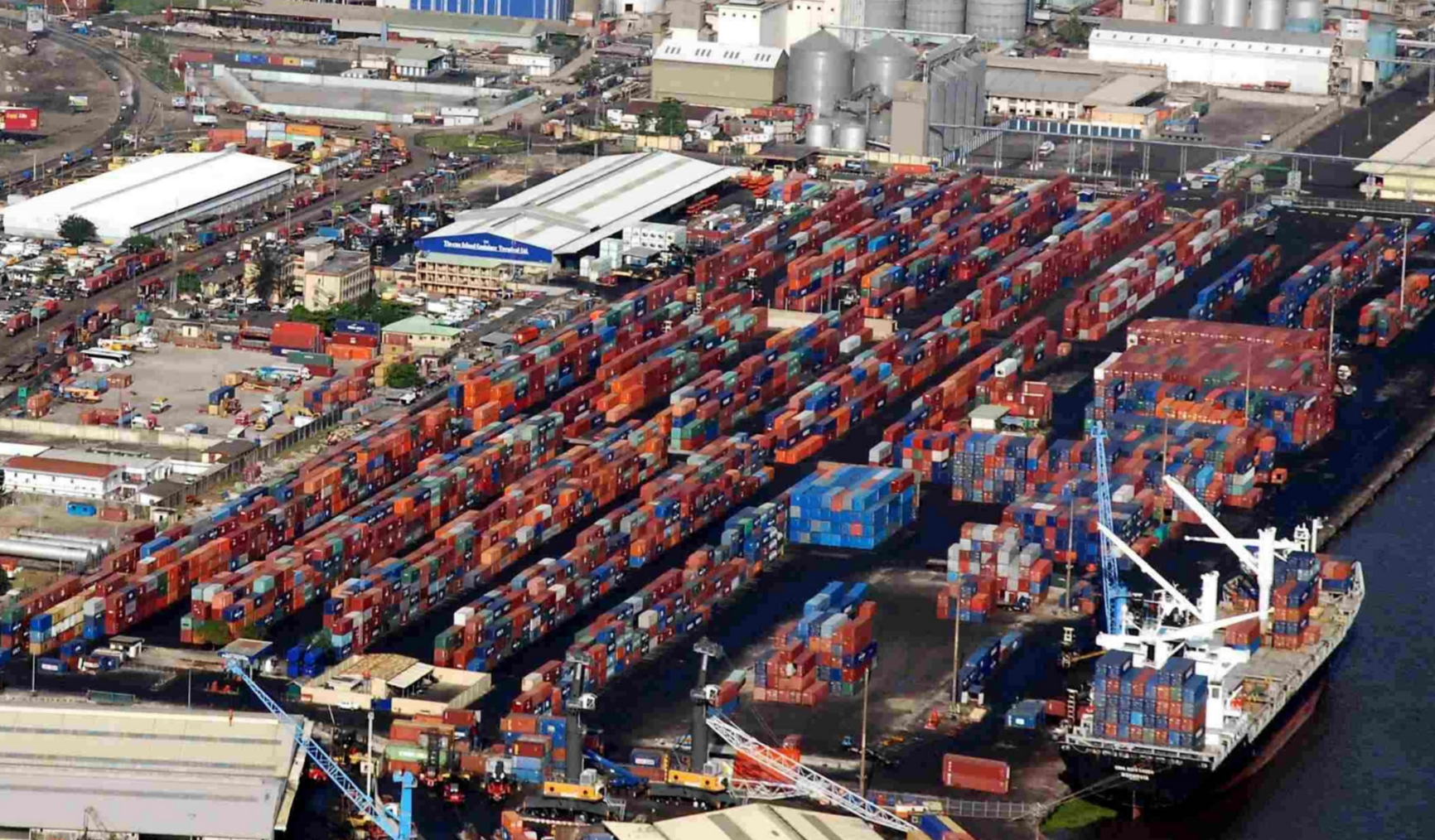Gulf of Guinea Maritime Insecurity: Are Local Waters Safer?
2021 has witnessed a reduction in the overall level of reported maritime criminality in Nigerian waters, but is this reported decline a reality or simply an illusion?
Arete examined this question in detail in our #AreteDeepDive piece on 28 October 2021, where we deconstructed the various trend indicators and their underlying factors as highlighted in the ICC IMB ‘Piracy and Armed Robbery Against Ships: Report for the period 01 Jan 2021 – 30 Jun 2021’ report. Click here to read it.
Our assessment and analysis showed that while there was indeed a reduction in reported piracy activity levels, the figures being quoted by various sources were possibly more a reflection of the systemic weakness in information gathering and ‘careful management’ of reporting of piracy and maritime crime by local agencies, as opposed to a genuine reduction in piracy activity levels (noting of course that a drop in incidents in Nigeria may also be due to a shift in the modus operandi of the pirate groups operating out of Nigeria, i.e. their now operating outside of Nigerian territorial waters and EEZ).
Since October’s analysis, we have witnessed several interesting developments in the overall security operating environment in the region, particularly in the Niger Delta. Key among these developments have been;
- Multiple attacks on and abductions of oil workers in the riverine environment in Bayelsa State;
- The action by the Danish frigate led to the deaths of four pirates, the wounding of a fifth, and arrest of others;
- Reports by the Nigerian Navy of widespread arrests of vessels carrying stolen crude oil;
- A report that Nigeria’s ports and anchorages have witnessed 27 attacks against vessels in the third quarter of 2021.
As is usual in the region, national and international media reported each of these developments according to their own interpretation and knowledge of the events and their significance, and the political or social leanings of the publication and individual journalists involved.
Given this, the aim of this latest analysis is to examine the events highlighted above and try to place them in the context of the overall pattern and evolution of security in Nigeria, its territorial waters, and beyond in the wider Gulf of Guinea.
Bayelsa and the Riverine / Onshore Context

On 27 November 2021, criminals, labelled in the Nigerian media as “sea pirates”, attacked workers of the Nigerian Agip Oil Company (NAOC) at the Obama Manifold. It is claimed they killed seven workers and two members of the Nigerian Security and Civil Defence Corps (NSCDC).
The next day, they abducted four people working for NAOC in the Okoroma and Ogbokiri-Akassa communities in Bayelsa State, read it here. The attackers also reportedly shot dead two other workers as well as a member of the NSCDC. The boat driver, an indigene of Okoroma community, was reported missing after the incident while two other members of the NSCDC were declared missing but later found alive. It was also reported that gunmen abducted four people from the Imbikiri community in two separate attacks earlier in November.
While it has been suggested on local social media that these incidents might be evidence that pirates who traditionally operate offshore are now focusing their efforts in the riverine areas of Nigeria – implying that the threat offshore is now diminished – this assumption needs to be taken with a strong degree of caution.
Firstly, it is too simplistic and inaccurate to characterise that every group in the Niger Delta has the capability and intent to operate offshore. Indeed, the proliferation of small arms in the region means that armed criminal gangs are ubiquitous with many operating according to numerous, diverse ‘business’ models – including ones that only sees certain gangs operating in the riverine areas alone.
Many of these gangs that operate solely on the rivers and in the riverine communities have no need to operate offshore given the profits gleaned from conducting armed robbery against passenger boats, extorting protection money from communities, acting as protection teams for gangs stealing crude oil from pipelines (and escort the barges carrying stolen crude) etc.
In short not all gangs operating in or out of Nigeria are ‘sea pirates’ (as the media portray them) meaning the increased attacks in the riverine areas does not necessarily indicate that the gangs operating offshore have ‘gone away’ or changed their modus operandi at all.
Furthermore, and examining this incident against a historical context, it must also be noted that the area where these incidents took place is particularly active in terms of organised theft of crude oil and also that for one reason or another NAOC is targeted more than other operators in that part of the Niger Delta.
Indeed, and as reported by the local media, there may be other drivers that might have triggered the attacks, including dissatisfaction with contract delivery and payment of local youths working on NAOC security contracts. This is a credible assertion.
Historically, attacks on NAOC people and infrastructure in the region has frequently been attributed to issues with contract award, rollout or delivery. It is perhaps interesting that Total Exploration and Production Nigeria (TEPN), which also operates in the area, suffers far fewer attacks on people and assets. This would seem to support the hypothesis that NAOC’s problems are specific to that company rather than generic attacks on the industry as a whole.
Summarising all of the above it is assessed that the spike in activity in Bayelsa is very likely part of a cycle of activity that is linked to NAOC operations and is not a reflection of a change in the modus operandi of all pirate gangs that traditionally operate offshore.
International warship operations in the Gulf of Guinea

In a widely reported incident, on 24 November 2021, the Danish naval vessel HDMS Esbern Snare encountered a speedboat with a number of armed men on board. Read about the incident here. The skiff was also carrying equipment characteristic of piracy operations in open water. In the ensuing encounter, a warning shot was fired by the Danish crew, which was responded to by the pirates with a volley of shots from assault rifles. The warship crew opened fire, killing four pirates, and capturing four others – one of whom was seriously wounded. The injured man was treated on board the ship and all four detained on board. They are now facing a trial in Denmark. Read the fuller story by clicking here.
The incident sparked a significant debate about jurisdiction, sovereignty and rules of engagement. Amid the debate about the legality of the engagement, there arose several questions among social media commentators concerning the impact of the incident. Some of the key questions asked were:
- Would this act as a strong deterrent to Nigerian based pirate groups and force them to operate closer inshore (or even move their operations to the riverine areas as theorise above)?
- Will this incident drive pirate gangs to arm themselves more heavily and act more aggressively in the future?
- Will this encourage pirates to attack international warships in the hope they will survive and then face trial in the vessel’s home nation – with the hope of being allowed to remain in the country after sentencing?
Clearly, these questions remain unanswered at the present time, but they do raise significant concerns for the shipping industry. Indeed, it is guaranteed that pirate gangs operating in the region will be carefully assessing what the presence of foreign warships in the region now means for their operations and criminal business models. Whilst the presence of international warships may deter some individuals, it is highly unlikely that well-organised pirate groups will cease operating.
One key point of this incident is the fact that the Danish vessel was responding to an intelligence report relating to an elevated threat of piracy in a specific area. The value of good intelligence is heavily underlined by this, and it is likely that the Nigerian Navy and NIMASA are now considering how their own intelligence capability measures up to that which drove this event (noting the country has invested heavily in the Deep Blue Project, which ironically is designed to undertake the kind of interdiction operations the Danish vessel was undertaking).
Another key point is this incident occurred despite a series of Nigerian Navy exercises that culminated in the 04 November Exercise Grand African NEMO 2021, which saw participation of 13 naval vessels as well as elements of four foreign navies. Read about the exercise by clicking here.
What is clear is that the Gulf of Guinea’s strategic significance to a number of states beyond Africa is increasing, and with as many as six foreign naval vessels operating in the region currently, the Nigerian based pirates appear to now be facing a significantly elevated threat to their own operations. What is yet unknown is whether the Danish incident will affect foreign navies appetites to undertake operations in the Gulf of Guinea moving forwards.
Illegal Bunkering and the Export of Stolen Crude Oil

On 07 December, media reported that the Nigerian Navy had intercepted four wooden boats laden with 16 thousand litres of illegally refined diesel, click here to read the story. This is just the latest report highlighting an enduring aspect of the kaleidoscope of criminality that endures throughout the Niger Delta region. Earlier in the year, other reports reflect the scale and scope of the illegal refining as well as the industrial levels of theft from Nigeria’s pipeline networks in the region. Arrests and seizures were made in Rivers State in September, read about some of them by clicking here. and in May 2021 the Nigerian Navy said it had intercepted about 128,612 barrels of crude oil valued at about N2,598,219,624 (approximately USD $6.24 million at today’s exchange rate) and 15,317,150 litres of AGO valued at over N3 Million (USD $7,200) between January and May.
This level of criminality is sustained by poverty and weak security along the region’s pipelines and rivers. The arrests and seizures represent a very small percentage of the overall levels of theft from the pipeline networks and well-heads in the region, but it goes some way to illustrate the diversity of security challenges and the degree of overstretch faced by the country’s security forces including the Nigerian Navy.
What is also clear is interdicting this type of criminality impinges heavily on the Nigerian Navy’s ability to secure the country’s riverine and maritime environment as scarce resources and over-tasked assets are stretched. The knock-on from this is the creation of greater operating space and freedom to operate for the piracy gangs that remain operating offshore.
The above being said the Nigerian Navy response to this persistent criminality is becoming more robust and proactive. On 12 December 2021, the Navy reported that it had deployed 10 warships, two helicopters, and elements of the Nigerian Special Boat Service and other military units in an exercise in the Onne area of the Bonny River.
This deployment, like that of Grand African Nemo 2021 last month, is focused on the riverine and inshore environment. The Navy statement revealed that exercise participants will conduct anti-piracy operations, protection of offshore oil and gas facilities, fleet manoeuvres and communication and gunnery as well as Maritime Interdiction Operations, including, vessel board search and seizure, opposed boarding, search and rescue and operations to curtail the activities of pirates/sea robbers, oil thieves, pipeline vandals and illegal bunkerers. This ambitious program includes tactics and techniques that have recently been practiced alongside Royal Marines from the British Royal Navy’s HMS Trent, a Batch 2 River-class offshore patrol vessel, read about it by clicking here.
Persistent Crime in Nigeria’s Ports and Anchorages

On 08 December 2021, NIMASA revealed that there had been a total of 27 security incidents involving ships in various ports and anchorages in the country during the third quarter of the year. This is an interesting revelation as the vast majority of these incidents had previously gone unreported. Whilst no details of the nature of the incidents was given, they are likely to include illegal boardings and theft. Such attacks represent lucrative chances for opportunistic thieves who live and work in and around the ports and anchorages. They are relatively low risk enterprises as most historical data shows the perpetrators escaping and remaining at large after the events. Very few crews will tackle boarders directly due to the safety concerns for themselves. This leaves the thieves free to escape when detected. Whilst they do contribute to the overall levels of risk facing seafarers and shipping companies, these attacks are separate and distinct from the sea piracy that occurs on open waters in both the nature of the crime and the perpetrators involved. However, some analysts include them in piracy statistics, which can be misleading.
Whilst the human impact of such incidents is low, the financial impact on the shipping companies is potentially significant. Any vessel that is declared a scene of crime will incur additional costs if forced to remain in the port where the incident occurred. The impact on insurance premiums, and other costs (replacement of equipment and stores etc), is cumulative though and the overall levels of criminality drive up insurance premiums – but only if the incidents are reported or a claim made. It is likely that, for these reasons, many incidents remain unreported, and the true rate of crime in ports and anchorages is much higher than that reported by NIMASA.
Further Incidents Deep Offshore
On 13 December, it was reported that at 14:27 hrs UTC a Liberian flagged container vessel was attacked and boarded by armed men in a position approximately 48 nautical miles southwest of Luba on Boko Island, Equatorial Guinea, and due south of Opobo in Rivers State. Read the news report by clicking here.
The vessel managed to send a mayday message and a helicopter responded from the Danish warship HMDS Esbern Snare, which was in the area. On arriving at the vessel under attack, the helicopter crew observed a speedboat alongside the vessel with both pirates and abducted crewmembers on board. After throwing unidentified objects into the water, the speedboat departed to the north with the helicopter shadowing from a safe distance until it returned to the warship.
As soon as the pirates had departed, the warship received a message that a crew member had been injured during the attack on the merchant vessel. Images seen by Arete analysts confirm other reports that the attack was very violent with the injured crewman receiving gunshot wounds to his lower leg. He was evacuated to the Danish warship where he received medical treatment. The warship remained on station and assisted in a search for two missing crew members.
Elsewhere in the region, in the early hours of 13 December, two vessels reported being approached by a small boat with armed men on board while they lay at anchor in the Owendo Anchorage in Gabon.
In the first incident, 5 men armed with assault rifles boarded a cargo vessel. The crew took refuge in the citadel. Nothing was reported stolen.
In the second incident, 12 armed men were seen on board a boat, which approached to within 15 metres of the unnamed tanker before being deterred by an alert crew shining lights on the boat.
These three incidents, when taken together, underline the fact that the pirate gangs have not retired, adopted a new modus operandi or shifted their operating footprint. The threat remains extant throughout the Gulf of Guinea and all shipping companies should continue to operate accordingly.
Summary
The maritime and riverine environments in Nigeria remain high-risk operating environments for shipping companies, seafarers, oil company employees, and local commercial boat operators and their customers.
Indeed, this analysis shows the multi-faceted nature of the environment with its different layers of actors and diverse forms of criminality. What is clear is the pirate gangs have not gone away despite the IMB reporting a decrease in the number of reported incidents.
It is also evident the ‘sea pirates’ remain focussed on deep water interdiction and undertaking hijack operations with the primary intent of kidnapping crew and thus remain a potent threat to all mariners in the region.
Finally, the oversimplification of the threat picture by the media more often hinders, not helps, shipping operator’s decision making and thus, as always, we advise key stakeholders to seek the advice and assistance of professional risk management experts such as Arete to help keep vessels and crew safe while operating in the Gulf of Guinea, particularly in Nigeria.

